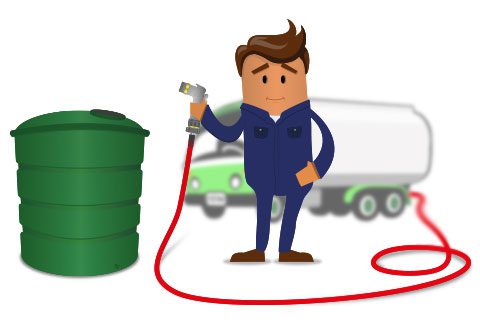With the rising cost of living across the UK, and sharp rise in petrol and diesel costs over the past few weeks, many drivers will be thinking about ways to save on fuel. Experts from Scrap Car Comparison have shared their advice on how you can make your fuel last longer in order to help cut costs.
Dan Gick, Managing Director from Scrap Car Comparison commented:
“It’s shocking to see the struggles people are enduring to ensure their cars can stay on the road as prices at the petrol pumps soar, but there are a few things you can do to ensure you’re making your fuel last for longer…
1) Fuel efficient driving –
“A driving technique to use is keeping your revs low by driving in the highest gear possible for the speed you’re travelling at. The optimum time to change gear for petrol vehicles is between 1,500 and 2,500 revs per minute (rpm) and between 1,300 rpm and 2,000 rpm for diesel vehicles. So avoid letting your revs get too high and change gears sooner and gently to conserve fuel.”
2) Check your tyres –
“An unlikely tip, but a really useful one. Ensure your tyre pressure is sufficient, as tyres which are even slightly under the recommended pressure will make your vehicle use more fuel. Check your vehicle’s handbook for the advised tyre pressure for your vehicle and get more miles from your motor.”
3) Minimise electric use –
“Anything in your vehicle that requires energy to power will need fuel to function. Everything from the heating and air con to the stereo and headlights will have an impact on your petrol or diesel consumption. To reserve fuel, minimise your use of heating and AC, and if you don’t have daytime running lights (which are typically economical), only use your headlights when it’s dark or you have poor visibility.”
4) Lighter car loads –
“If your vehicle is carrying a heavy load, it will use more fuel as you’re driving. So, if there are weighty objects in your car or van that you can live without, items such as heavy tools or bike and roof racks, it’s worth removing them. Removing external extras such as roof and bike racks will also reduce drag and save your petrol and diesel. Any items in the backseats or boots that are not essential can also be removed to lighten the load.”
5) Stopping and starting –
“You might think that turning off your engine while waiting can save your petrol or diesel, but depending on the vehicle you’re driving and how warm your engine is, stopping and starting the engine can actually use more fuel rather than conserve it. The general rule of thumb is if you’re stopping for a few minutes, then it’s more beneficial to your tank to keep the motor running. However, if you’ve come to a stand still and are expected to wait over 3-4 minutes (perhaps at train gates) then it can be more efficient to turn your engine off and restart when you need to.”
6) Combine journeys –
“Where you can, combine journeys or make them shorter where possible – less driving means less fuel consumption!”
7) Use an alternative method of transport –
“If you’re making a short journey, consider leaving your vehicle at home and either walk, cycle or use public transport in order to keep your tank topped up. If you aren’t using your vehicle as much as you have been, find out how to keep it maintained.“
8) Only fill up when you really need to –
“Ideally, you shouldn’t wait for your fuel light to turn on, as driving with so little petrol or diesel in your motor causes debris from the bottom of the tank to get picked up, potentially damaging the fuel filter and pump which can be costly to repair. Where possible, fill your tank up as much as you can so you can avoid joining the queues (again).”
Help keep news FREE for our readers
Supporting your local community newspaper/online news outlet is crucial now more than ever. If you believe in independent journalism, then consider making a valuable contribution by making a one-time or monthly donation. We operate in rural areas where providing unbiased news can be challenging. Read More About Supporting The West Wales Chronicle


























